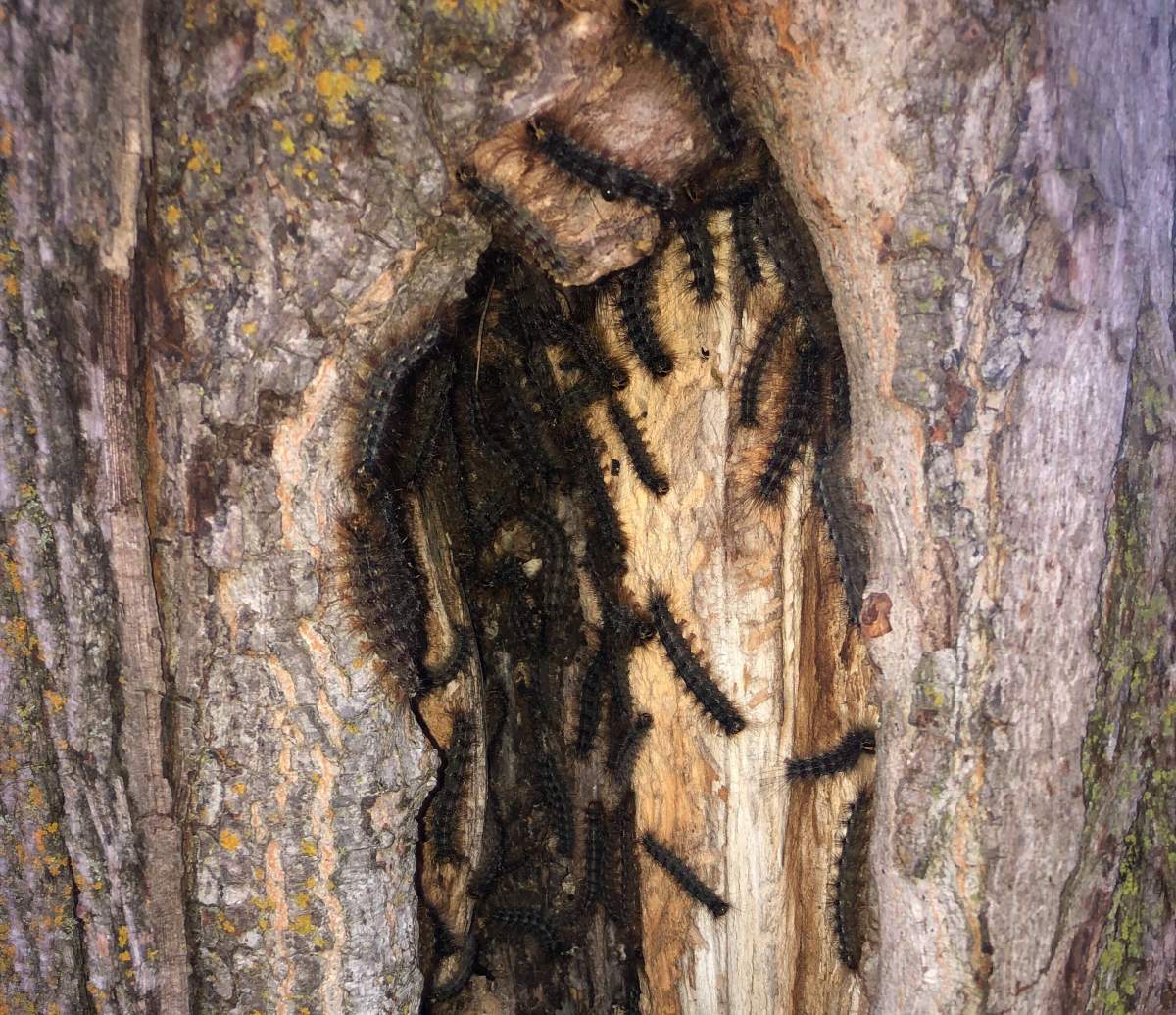The City of Guelph says it is monitoring the population of the gypsy moth caterpillars as other parts of Ontario deal with an outbreak of the invasive critters.

They have the ability to attack a tree in the hundreds, eating all of its leaves and eventually killing it.
It’s not a bad year in Guelph, but it’s not a great year either, according to the city’s manager of park operations and forestry.
“We haven’t experienced significant damage to trees or losses,” Gene Matthews said in a phone interview. “It’s here, just not in large doses that we’re seeing in other municipalities.”
Gypsy moth outbreaks usually cycle every seven to ten years and during that cycle, the population can remain high for two to three years, but Matthews said it’s difficult to tell if the current population is on its way up or down.
So for now, the city is just monitoring the situation.

Get breaking National news
“Should we see things increase over the next year we may change our approach from a monitoring point of a view to a managing point of view,” Matthew said.
He said that could include setting up traps and spraying trees with an approved chemical.

Residents can email the parks and forestry department to report sightings on public property, which will then be documented by a worker.
When it comes to trees on private property, Matthews said residents can purchase traps and sprays at a hardware store or call a qualified arborist to deal with an infestation of caterpillars.
Guelph is also having a rough time with emerald ash borer, another invasive species, and was forced to cut down more than 800 trees in Preservation Park earlier this year.
But Matthews said the two outbreaks are not the same.
“Not the same impact just yet,” he said. “We’ll be monitoring it more closely as the next couple of years come to us.”








Comments
Want to discuss? Please read our Commenting Policy first.